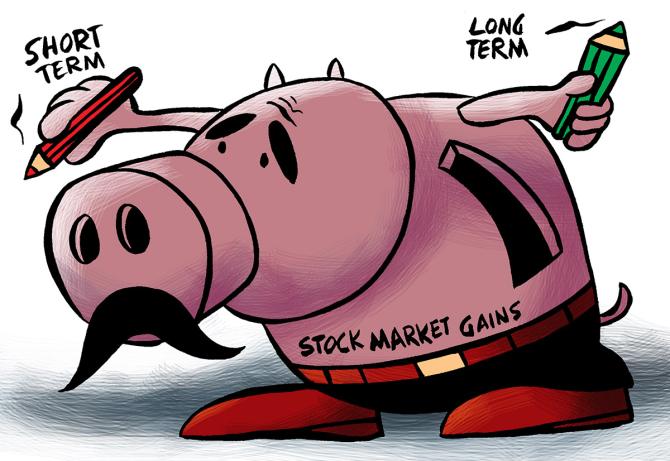Indian equity markets had a good run in the first half of calendar year 2023 (CY23), with the S&P BSE Sensex and the National Stock Exchange Nifty50 hitting fresh 52-week highs.

While the Sensex scaled up to a peak 64,718, the Nifty50 hit Mt 19,189.
As the markets now prepare to enter the second half (H2) of CY23, all eyes are on global central banks, especially the US Federal Reserve, as to when they will pause and pivot as regards their interest-rate cycle.
Back home, the progress of the monsoon, its impact on inflation, state elections, and corporate results are among the key variables that will be trend deciders for the markets, most analysts feel.
Will H2CY23 bring more cheer to equity investors, or should they brace for volatility amid uncertainty?
Here’s what leading research and brokerage houses expect:
Morgan Stanley
Bright star in EM galaxy
India will perform in line with the overall performance of emerging markets.
Japan, however, is our most preferred region, with an improving return on equity and a superior earnings per share outlook.
From a regional perspective, we remain underweight on US equities, which, we think, face the greatest earnings risk in 2023.
Slowing developed market growth amid tight monetary policy should support defensive sectors.
Within this, we see health care as an outperformer across regions, with reasonable valuations, a high yield, and non-cyclical characteristics.
South Korea and Taiwan should also benefit from the theme of accelerating Asia’s growth, even as the US and Europe slow down.
Slower growth and lower inflation should allow for more policy easing, as we think real rates are too high, relative to our forecasts for growth and inflation.
J P Morgan
Still a red rag to a bull (market)
We think the worst of the bear market in stocks is over.
Recession or no recession, we don’t think the market will revisit the October 2022 lows.
The bad news, however, is that it probably isn’t a bull market yet, and we expect volatility through the second half of the year.
Instead of continuing to reduce exposure, investors should consider using the potential volatility to rebuild equity portfolios.
Jeffries
A feather in small- and mid-caps
Small- and mid-caps are back in favour, outperforming large-caps in the calendar year to date (CYTD).
Mid- and small-cap funds have accounted for disproportionate (1.7x of inflows in large- and multi-caps) inflows CYTD, and the trend seems to be holding up.
We like the small- and mid-cap space, as it has a higher share of domestic economy stocks and also doubles the share of our favourite property and industrial stocks.
Large-caps have very few options to play the investment cycle recovery.
Spillover of demand to small- and mid-caps can drive large outperformance.
CLSA
Erring on the side of caution
We remain cautious for now, given the exceedingly rich valuations, margin erosion depleting India’s relative profitability, consensus earnings per share growth expectations remaining too optimistic, the Reserve Bank of India likely lagging emerging market central banks in the timing and scale of policy easing, and our econometric model signalling the market is 14 per cent overbought.
HSBC
A shoo-in for economy on firm footing
We are now overweight on Indian equities due to an improving earnings outlook. Furthermore, global investors are starting to reallocate to India.
India’s economy is on a firm footing, with high economic growth, declining inflation, and a stable rupee. This is supportive of the local bond market.
The possible inclusion of India’s bonds in JP Morgan Government Bond Index-Emerging Market could be supportive of Indian bonds.
Julius Baer
In defence of defensives
We expect equity market performance to diverge across regions and continue to recommend a selective approach.
Our focus is on Southeast Asia and India, where we are overweight.
India should benefit from favourable economic policies, and the composition of its private sector supports the country’s long-term structural growth.
Globally, with growth set to slow, defensive companies should fare better than the broader market, and their shares should also be less volatile.
However, not all defensives are equal.
Our preference is for defensive stocks in attractive markets and/or those that can grow by gaining market share.
We have identified several areas where such companies can be found: casual dining, personal care, alcoholic beverages, food retail, health care, tower communications, and utilities.











